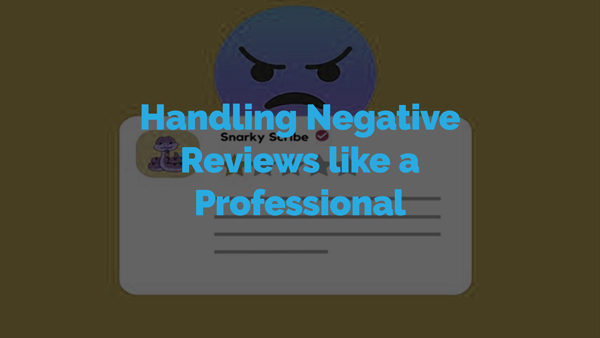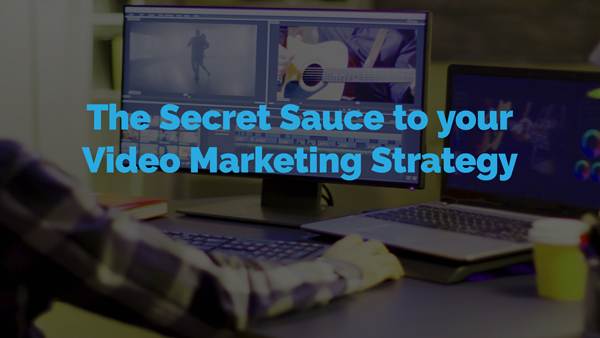So you’ve decided to start a blog for your website. We’ve talked before about the benefits of starting a blog but you may be wondering where to start.
Our number one tip before you read through the rest of this guide is:
Just get started!
As we’ve mentioned before, blogs are a great way to boost your SEO and customer interactions, but the longer you leave before starting your blog, the more you are missing out on the benefits.
But I’m Not A Writer
One of the biggest obstacles people think about beginning a blog is that you must be a great writer to be successful. Nothing could be further from the truth. People read blogs to hear a personal viewpoint on topics. In fact, most blogs you’ll read are written in a fairly informal and conversational way.
To have a good blog, you really only need to have one thing:
A passion for what you are talking about.
If your business is all about fishing supplies, you’ll already have that love, expertise and experience with fishing. People want to hear from someone who truly cares about that topic, so even if you’re writing about paint drying, people will listen, because you’re passionate about the paint, about the walls and about the way the painter worked their magic.

How Should I Start Blogging?
What is your blog about?
Remember, people are reading your blog to get to know you and your business.
Are you a source of knowledge providing educational content?
Are you a storyteller and want to talk about your experiences on the job?
The topic of your blog is very important. Here are a few topic suggestions:
Life Experiences
This kind of blog is all about your own lessons you’ve learnt through life. This can be things you’ve learnt on the job or if your product or service is related to a hobby or activity, like fishing, your blog can be about experiences you’ve had while fishing.
Personal Blog
This is a blog that helps your customers get to know you or your business a bit better. This might be where you share different aspects about yourself or your business, like what you do on a daily basis, some thoughts or opinions you have about where the industry is going, or even just sharing your hobbies and interests. If you run a consultancy business, you might want to use your blog as a place where people can get to know you a bit better.
Educational
This is a blog where you are all about giving advice. Perhaps you’re resharing some of the latest industry news, or perhaps giving some valuable tips & tricks. Whatever it may be, this type of blog is best suited for businesses where you want to establish yourself as the expert in the field.
At the end of the day, it’s okay to switch your topic up, as long as each post sticks to a topic. But if you don’t keep it consistent within the post then that can cause issues. If in one post you’re talking about your favourite fishing spots and in the paragraph you’re talking about politics, people are less likely to stick around and read your posts. Make sure your posts always have a topic and they always have a main point. For example, this post is all about guidance for starting a blog, so I won’t be mentioning the best ways to optimise on-page SEO. If you have a few ideas you want to share, you can always write more blog posts and the link between them.
Create Valuable Content
Giving your visitors quality information is the key to a successful business blog.  That is how you develop the authority of your website in your industry. Furthermore, if you provide great material to your readers, they will thank you by returning and spending money on products and services you recommend.
That is how you develop the authority of your website in your industry. Furthermore, if you provide great material to your readers, they will thank you by returning and spending money on products and services you recommend.
That being said, don’t make your content too “salesy”. If you are dropping products and services into every single post, people reading are going to see this as superficial. Readers are generally unresponsive to pushy or aggressive posts that are always trying to sell them something. If you’re writing a post about your ‘Top 10 Best Fishing Rods’, then of course you can include your products and link to them. But if you’re writing about an experience you had and suddenly there’s a whole bunch of links to products, that can really take people out of the story and stop them from sticking around.
Frequency & Planning
Blogging frequently and consistently is a great way to keep your blog from going stale and keep your SEO high. Each time you add a new post to your site, this is treated as new content on your website. Search engine crawlers will then search your page to find salient information which will increase your overall SEO.
I’m not suggesting that you spend all of your time creating blog posts. Running your small business is your full-time job, not blogging about it. Setting aside some time to blog when you can, on the other hand, is useful to the growth of your business. You could also have an employee edit your company blog or write a few of their own posts. Showing off more of the people in your company will help your audience and customers get to know your whole business better and build familiarity and likeness to your business.
Planning is a good way to keep on top of your blog as well. You can plan to write a post once a week or write several posts in one day and schedule to post them over the course of the month.
Do Some Research
A great way to find inspiration for your blog is to do a little bit of research on what your competitors are doing. Do they write “Top 10” articles? Are they posting about industry news? What are some of their blog post headlines?
Taking inspiration from others in the industry can help you find out what you want to write about. Just make sure you are always keeping your blog posts original and not copying their blog word for word. But if you see a blog post you really like, write your own take in your own words.
Overall the main takeaway about starting a blog is to make sure you get started. Even though we’ve provided some guidance on what ways you can get inspiration or how you can write, don’t get too stuck trying to make sure you have the perfect blog post. Writing blogs takes practice and sometimes you might not know what topics you want to write about until you start writing.
If you want to check out some of the benefits of writing a blog, be sure to read our previous blog post.
And so we hope we’ve helped give you some support in starting your very own blog. Happy writing!






